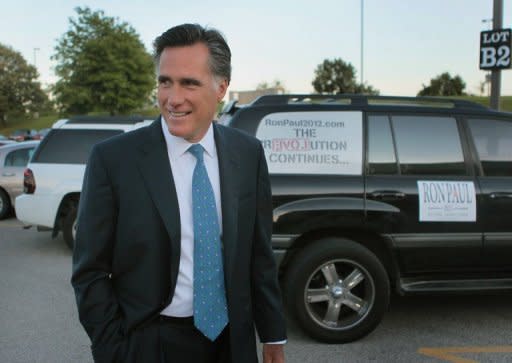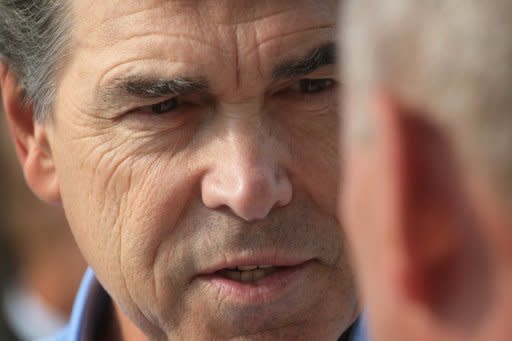Obama, Republicans step up 2012 rhetoric
President Barack Obama told Republicans to stop playing games that were hobbling the US economy Monday, but his foes mocked his "Magical Misery tour" by bus in the recession-hit Midwest. Reeling from one of the bleakest patches of his crisis-strewn presidency, Obama boarded his new $1.1 million Secret Service armored bus for a three-day, three-state bus trip at a time of deep national gloom over the economy. He sketched the framework of his 2012 reelection campaign, slammed Republicans for blocking his job creation plans, criticized billionaire tax breaks and defended his health care law, which is reviled by conservatives. "We've got a politics in which some folks in Congress... would rather see their opponents lose than America win," Obama told 500 people, beside a pastoral riverbank in Minnesota that contrasted with the Washington hothouse. "You've got to send a message to Washington that it's time for the games to stop. It's time to put country first," Obama said, before setting course for Iowa, another crucial Midwestern swing state. Obama's 2012 reelection prospects are under a cloud because although he can claim to have staved off a second Great Depression, economic growth is slowing and is not fast enough to make a dent in 9.1 percent unemployment. Mitt Romney, front-runner for the Republican presidential nomination, zeroed in on Obama's weakness, saying he was oblivious to the human cost of the lagging economy. "During his Magical Misery bus tour this week, it is unlikely President Obama will speak with unemployed Americans, to near-bankrupt business owners, or to families struggling to survive in this economy," Romney said. "He is more interested in campaigning in swing states than working to solve the economic crisis that is crushing the middle class. "Turning this economy around will require real leadership and the experience of someone who has actually worked in the private sector." Texas Governor Rick Perry, the Republican of the moment who jumped into the race at the weekend, issued a direct challenge to Obama. "He says he's on a listening tour so Iâm going to talk to him," Perry was quoted as saying in Iowa by the Des Moines Register newspaper. "Mr. President you need to free up the employers of this country to create jobs. Get rid of the regulations that are stifling jobs in America." Obama called on Republicans to back an extension of a payroll tax cut, ratify free trade deals with Panama, Colombia and South Korea, and to back his plan to put Iraq and Afghan war veterans to work. He implored Congress to put hundreds of thousands of construction workers back on the job repairing America's crumbling infrastructure, though the initiative faces a tough road through Congress. He also jabbed at Romney and House of Representatives Speaker John Boehner, who, he argued, scuppered chances for a $4 trillion deficit reduction deal to shield the rich from higher taxes. "He walked away because his belief was, we can't ask anything of millionaires and billionaires and big corporations in order to close our deficit." Obama said it was "puzzling" that Romney was criticizing his health care plan, dubbed "Obamacare" by critics, given that he introduced a similar one himself when he was governor of Massachusetts. "I have no problem with folks saying Obama cares. I do care. If the other side wants to be the folks who don't care, that is fine by me." The president later boarded the new sleek, almost sinister-looking, bus with blacked-out windows and a plethora of secure communications equipment, before cruising across the fertile Minnesota plains headed for Iowa. The state, which holds the first presidential nominating contest, was the place where Obama first fired up his grass roots political army and beat Democratic rival Hillary Clinton en route to the White House. But his Gallup poll approval rating has dropped below 50 percent in the state, which is likely to be a must-win for Obama as he maps his road back to the White House in 2012. His national prospects are also perilous. Obama's approval rating has dipped below 40 percent in a Gallup daily tracking poll for the first time.




